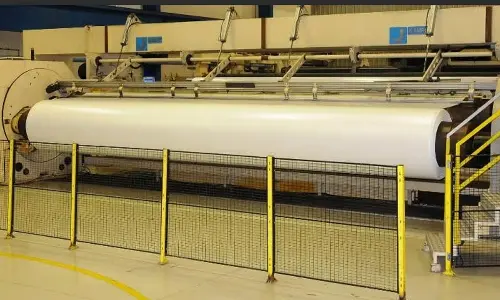Career in Environmental Science

Career in Environmental Science
Human beings, thought to be the most intelligent of God's creations, have caused the worst damage to the nature and its harmony
Human beings, thought to be the most intelligent of God's creations, have caused the worst damage to the nature and its harmony. Stratospheric ozone depletion, mangrove destruction, acid rain, loss of biodiversity and tropical deforestation have all come to a point where they seem either irreversible or too costly to mitigate. Negative consequences are there for all to see - sea level is rising, land degradation is apparent, more frequent or intense flooding of river and coastal areas, long-drawn droughts, unpredictable climatic changes have already started affecting us.
Environmental Scientists and Engineers work to measure different environmental factors, offer technical solutions to maintain a sustainable lifestyle and come up with innovative applications of scientific and engineering principles and concepts for environmental modeling and damage control.
Environmental Science careers encompass all the jobs related to researching, monitoring and controlling our atmospheric, terrestrial and aquatic environment. It means that Environmental Sciences and Engineering cuts across various departments to cover microbiology, atmospheric sciences, climate management, water management, energy management, environmental chemistry, environmental technology, and oceanography. An environmental science degree equips you with essential skills that could lead to a job in the environment sector or in other related areas.
What is Environmental Science?
Environmental science is a holistic and multidisciplinary field. It is an integration of the physical, biological, and earth sciences, which aims to understand how Earth works and supports life. By identifying Nature's systems, we seek to control and prevent disruption to its processes occurring due to myriad human activities. Saving the environment means not only saving human health but also protecting several other life forms or species that are on the verge of extinction because of us.
Thus, environmental scientists investigate the source of environmental problems and device strategies to combat them. It may include working with the industry to reduce waste and pollution, cleaning up contaminated areas, and making policy recommendations for a cleaner and greener planet.
What do Environmental Scientists actually do?
As an environmental expert, you may have to travel around the world or work from home – as the situation demands. Most Environmental Science careers are some kind of a blend between desk job and fieldwork – and focus on written, physical, or mathematical aspects of environmental studies.
To research on pollutants or health hazards, environmental scientists have to determine data collection methods; collect water, air, and soil samples and analse them; and find correlations to human activities. They also have to prepare reports and presentations to document and explain their findings.
Some environmental scientists also conduct inspections of businesses and factories to assess whether they are adhering to government rules and regulations or not, keep an eye on the practices they are following, and prevent creation of new environmental hazards.
Some environmental experts specialize in ecological issues while others specialize in potential threats to human health. Water conservation, reduction of carbon footprint, increased use of clean and green energy – all come under the blanket of Environmental Sciences. It is relatively easy to find relevant work experience opportunities since many environmental organizations need help from people willing to carry out unpaid work.
Working in a voluntary capacity in an environment-related role may often be the first step to more specialist, paid employment. Many students get involved in clubs and societies while still at university or take up volunteering roles with conservation organizations, such as The Wildlife Trusts, or become active in campaigning groups in their local area.
Volunteering gives you experience that is difficult to gain elsewhere and shows commitment. Some students attend conferences and debates on environmental concerns, subscribe to relevant magazines and journals, or go travelling. All these experiences may be persuasive to an employer.
(The author is a career counsellor based in New Delhi )















